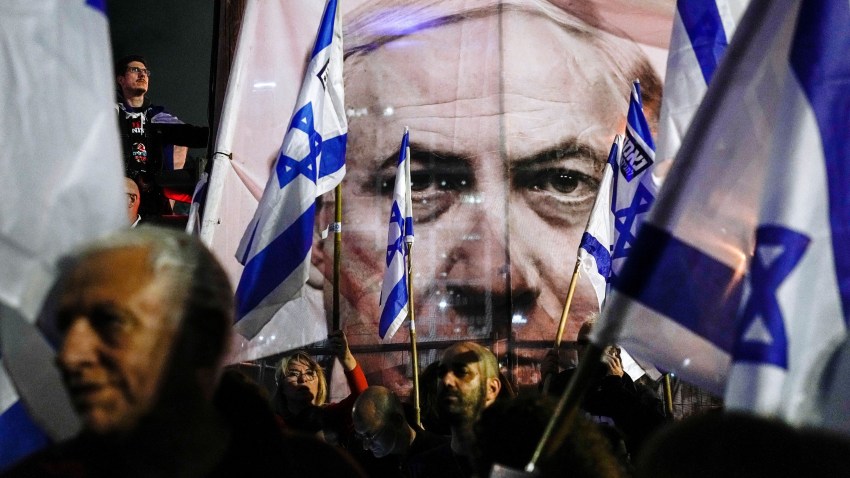Today at WPR, we’re covering the challenges ahead for Ecuador’s president-elect and how climate change is threatening South America’s Lake Titicaca.
But first, here’s our take on today’s top story.
Israel-Hamas war: PM Benjamin Netanyahu has apologized for a since-deleted post on X, formerly Twitter, in which he blamed Israel’s military and security chiefs for the failures that enabled Hamas’ attack on Oct. 7. The post was met with severe backlash, including from officials within Netanyahu’s war cabinet, publicly revealing rifts among Israel’s leadership. (New York Times)
Our Take: Even before Oct. 7, Israel’s political landscape was already severely fractured, with its main fault line being the one between Netanyahu and the “anyone but Netanyahu” coalition. Since he returned to power last year with a government that included far-right, pro-settler parties, that divide has only been exacerbated.
Get the Daily Review sent straight to your inbox every weekday.
Predictably, Hamas’ attack has created an intense rally ’round the flag effect in Israel. Polling suggests that much of the public supports the country’s ruthless retaliation on Gaza, even as Israel faces growing international backlash over the assault’s humanitarian consequences as well as its violation of the laws of war.
However, as strong as that rallying effect may be, it has not been extended to Netanyahu. For the first time in his career as Israel’s PM for 14 of the past 16 years, he is no longer synonymous with the flag that Israelis are rallying around.
In fact, Netanyahu’s divisive policies are widely blamed for the lapses in security that enabled Hamas’ attack. However, unlike other senior officials, including Israel’s defense minister, Netanyahu has declined to accept any responsibility for Israel being caught so off-guard. Now, it seems increasingly clear that he will not survive politically once the war in Gaza is over. He may not even last that long.
More importantly, however, the combination of a fractured political landscape and a population bent on revenge means that Israel’s domestic politics are currently built on a febrile foundation that is ill-suited for fighting a war, especially one that will likely be, as Netanyahu himself described it, “long and difficult.”

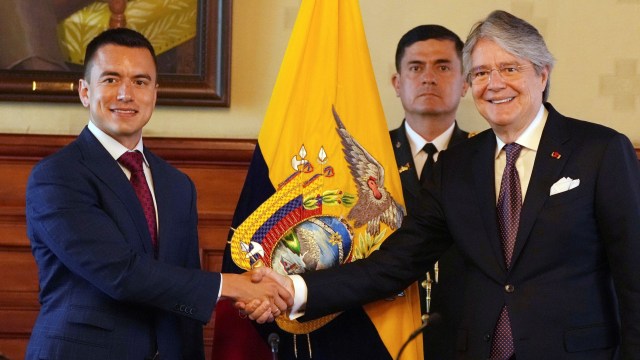
In Ecuador, Noboa Needs to Learn from Lasso’s Mistakes
On Oct. 15th, Daniel Noboa, a 35-year-old business executive, won the race to be Ecuador’s next president. Due to the circumstances of the election, though, Noboa will only serve the rest of outgoing President Guillermo Lasso’s term, scheduled to end in mid-2025.
At that time, Noboa will have the option to run for reelection. For him to complete Lasso’s term and potentially win a full term in office for himself, he needs to learn from Lasso’s successes and failures, columnist James Bosworth writes.
Lake Titicaca Is Drying Up—and There’s No Plan to Save It
Lake Titicaca, the freshwater lake spanning the border between Peru and Bolivia, has been a natural treasure dating back to pre-Inca times. The largest lake in South America, it is critical to supporting the livelihoods of 3 million people, who rely on it for fishing, agriculture and tourism.
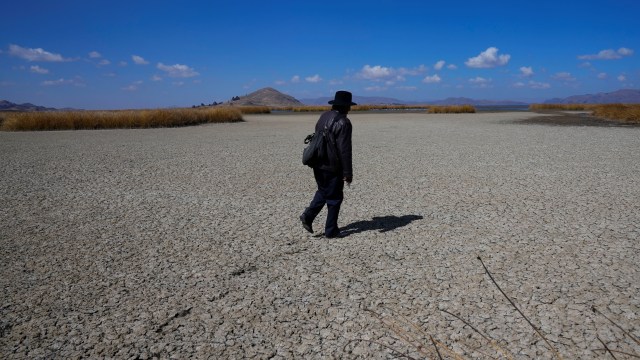
That makes it all the more alarming that this year Lake Titicaca was named the “Threatened Lake of the Year” by the Global Nature Fund and the Living Lakes Network—the second time it has received this recognition in just 11 years.
Robert Looney on what needs to be done to save the lake.

Question of the Day: What is the name of the sole road connecting Nagorno-Karabakh with Armenia, which Azerbaijan reopened in September to allow Armenian refugees to travel out of the enclave and into Armenia?
Find the answer in the latest WPR Weekly Quiz, then read Laurence Broers’s in-depth article on the coming fallout from the Nagorno-Karabakh wars.

In Colombia, opposition candidates largely swept elections on Sunday for mayors, governors and regional lawmakers, a reflection of the declining popularity of President Gustavo Petro’s leftist coalition.
Petro, the country’s first leftist president, took office last year with high expectations and an ambitious political and economic reform agenda. As Joshua Collins wrote in June, however, a series of setbacks have since eroded his political capital and sunk his approval rating, making it increasingly difficult for him to pass that agenda.
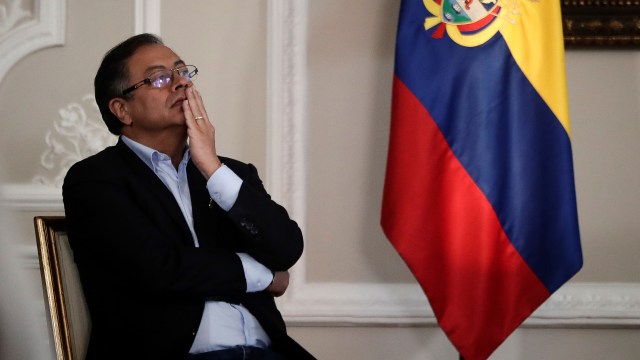
Petro’s Domestic Agenda Has Hit a Wall in Colombia
June 2, 2023 | Colombian President Gustavo Petro took office last year with an ambitious reform agenda, but he may have run out of political capital. Read more.
Authorities in Bangladesh arrested a key opposition figure on Sunday, a day after a massive rally in Dhaka by tens of thousands of protesters turned violent. Led by the opposition Bangladesh Nationalist Party, or BNP, protesters are demanding that PM Sheikh Hasina resign and transfer power to a non-partisan caretaker government to oversee next year’s general elections.
Protests have been ongoing in Bangladesh throughout the year as Hasina’s Awami League party continues to consolidate power and close democratic space. As Shehryar Fazli wrote in February, Hasina’s leadership has been challenged numerous times since returning to power in 2009, but always survives. This time, she is even less likely to concede to the opposition and protesters’ demands.
Hasina Is Pushing Bangladesh’s Democracy to the Breaking Point
Feb. 14, 2023 | Sheikh Hasina is facing rising protests, but with a year until elections, her crackdown on Bangladesh’s democracy will likely continue. Read more.
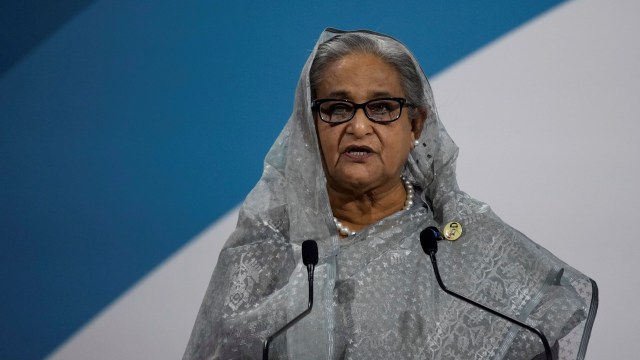
More From WPR
- Chris Ògúnmọ́dẹdé on reactions to the Israel-Hamas war in Africa.
- Paul Poast on Biden’s foreign policy.
- Peter Salisbury on the war in Yemen.
- Frida Ghitis on Chile’s new draft constitution.

